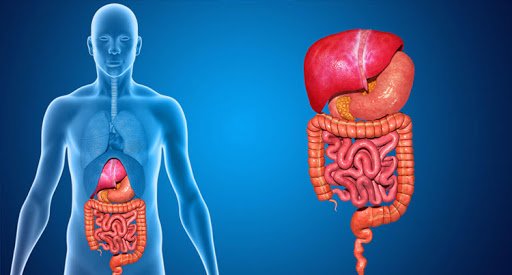7 Signs You Need to Visit Your Gastroenterologist

In India, major health care issues are solved by private doctors, especially in urban areas. Common people see general practitioners, general physicians, general surgeons and from there they are referred to a specialist for further management of complex diseases and specialized procedures. Commonly, this hierarchy is beneficial to the patients but in some instances, when patient reaches to the specialist, either it is too late, or finances of patient are drained out. So, in some cases it’s better to meet a specialist for better and instant results.
Who is a gastroenterologist? What is Gastroenterology?
Gastroenterology is a sub-specialty which covers the problems related to entire digestive process. Field of Gastroenterology includes not only digestive tract starting from esophagus (food-pipe), stomach, small intestine, large intestine and rectum; but covers the organs involved in digestive process like liver, gall-bladder, pancreas and common bile duct. These problems are diagnosed by gastroenterologist by means of meticulous history taking, clinical examination, multiple blood tests, imaging, and endoscopy. These problems are treated by medications, endoscopy and sometimes surgical interventions are required. Dr Vatsal Mehta is practicing Gastroenterologist in Ahmedabad.
What is endoscopy?
Endoscopy is a visualization of internal organs like food pipe, stomach and the initial part of the small intestine are seen in Upper GI Endoscopy while in colonoscopy there is visualization of large intestines and small intestine. A flexible, thin endoscope is used for this procedure, which has a light and a viewing instrument that sends images to monitor.
The doctor carefully examines the video produced during the procedure to understand the pathology within the tract. Sometimes endoscopy is used for administration of therapy like band ligation, glue injection, dilatation of narrowed segment of gastrointestinal tract.
What are the symptoms when I should consult a gastroenterologist?
1. Difficulty in swallowing:
When a patient feels that something is stuck in the food-pipe, it usually requires an upper GI endoscopy for diagnosis and further management of the said problem. Endoscopy can diagnose problems like reflux esophagitis, tumor of esophagus, achalasia cardia and stricture (narrowing of esophagus). These problems can be managed by specific medications, endoscopic procedure, or surgery. Hence, meeting a gastroenterologist, before you loose significant weight is highly advisable.
2. Long standing acidity and indigestion:
Patients with short lasting symptoms of acidity, liquid reflux or digestions can be managed by temporary over the counter medication, while when these symptoms are chronic and long standing, they must see a gastroenterologist for further guidance. These patients often have H Pylori infection. In presence of weight loss, persistent vomiting, or bleeding serious problems like gastric ulcer bleeding, tumour or dilated veins in the stomach region can be found on endoscopy.
3. Blood in vomiting
Presence of blood in vomiting indicated a medical emergency. In such situation, patient may require emergency endoscopy apart from medical management, resuscitation, and blood transfusion. In these patients active bleeding is controlled be endoscopy, sometimes further bleeding is prevented by endoscopy.
4. Jaundice
Presence of yellow dis-colouration of skin and sclera is known as jaundice. One of the common symptoms of liver disease is jaundice. Causes of jaundice includes a wide spectrum of disease including viral infections of liver (hepatitis), long standing liver damage (liver cirrhosis) and obstruction of bile draining channels of liver. Careful evaluation and treatment in these cases is very important to prevent liver failure, infection in bile pathway or permanent liver damage. Timely treatment results in significant improvement in patients’ health and generalized well-being.
5. Chronic diarrhea:
Diarrhea usually occurs due to consumption of food or water harvesting infectious agents like viruses, bacteria, or parasites. When short lasting these cases are managed by improving hydration orally and tablets to conquer infections. On the other hand, chronic diarrhea lasting for more than a month can result in malnutrition and weight loss along with poor quality of life. In these patients, laboratory, and endoscopic evaluation of cause of diarrhea is prudent. Causes like food allergy, gluten sensitivity, inflammatory bowel diseases like ulcerative colitis and Crohn’s disease and TB of intestine etc. have tendency to stay undetected for months before systematic approach and scientific treatment is offered.
6. Constipation
Constipation is very common problem seen worldwide and is often overlooked. Constipation not only produces symptoms like feel of incomplete evacuation, abdominal pain but it also creates social and mental distress. Careful examination, laboratory investigation and colonoscopy help to find-out the cause of constipation, treating them makes patient fee from the same. Irritable bowel disease, functional constipation, colonic tumors, colonic polyps, inflammation of rectum and solitary rectal ulcer syndrome are common treatable cause of constipation.
7. Blood in stools
Appearance of blood in stool in small quantity can be managed on outpatient bases, while large amount of blood in stools can become a medical emergency. Ulcer in internal lining of small or large bowel, tumor or a polyp can be readily diagnosed and treated by endoscopy.
Gastroenterology is a very vast subject, multiple reasons are seen in various patients with pain in abdomen, vomiting, distension of abdomen or collection of fluid in abdomen. These all patients require to see a gastroenterologist for finding out the reason and the way to get relief form it.
For more information or to schedule an appointment with Best Gastroenterologist, Call on +91 75675 41444!
